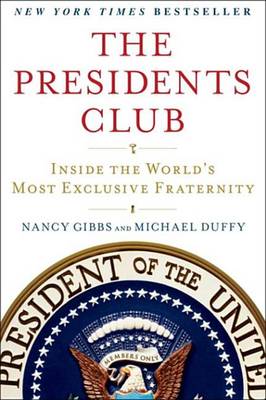Reviewed by gmcgregor on
The list of former presidents is pretty short: there's only 43 of them, and there's never more than a handful (if any) still living. Assuming nothing happens to anyone before the end of Obama's term, there will be five of them. Many of them go on to do charitable work for causes they feel strongly about, but they don't tend to be the kind of people to just go away quietly once their time in the spotlight is over. They tend to meddle, either to the good or ill of the current tenant at the White House, and part of that depends on how the current president uses them.
Gibbs and Duffy's book explores the relationships of the post-WW2 presidents, comparing and contrasting as they go along. As someone relatively unfamiliar with many of the presidents (I'm informed for an average person, but since the presidency isn't a particular interest, I'm not even close to actually informed), I found the book absolutely fascinating. I found it especially compelling to look at how each president related to their predecessor as opposed to those who came after them: for example, Truman's willingness to reach out to and ask for help from Hoover (and the close relationship they ended up having) informs his obvious hurt when Eisenhower apparently wanted nothing to do with him, particularly considering that they had been close during Truman's presidency and Truman had even encouraged him to run for office. Death and scandal unite the club, illustrating that for all of personal emotional threads that may or may not unite the men within it, it's really fundamentally about ensuring the legacy and protecting the role of the presidency itself.
I think there's a basic human urge to want to find people who have important things in common with you to hang out with. I would never personally want to run for or become the president, but I can only imagine if I were to be, how grateful I would be to have the people around who'd done it before and be able to join with them when I was done to support the new kid. Even if politics isn't your usual thing, this book is much more about the relationships between people. I really enjoyed it and I think you will too!
Reading updates
- Started reading
- 30 April, 2016: Finished reading
- 30 April, 2016: Reviewed
